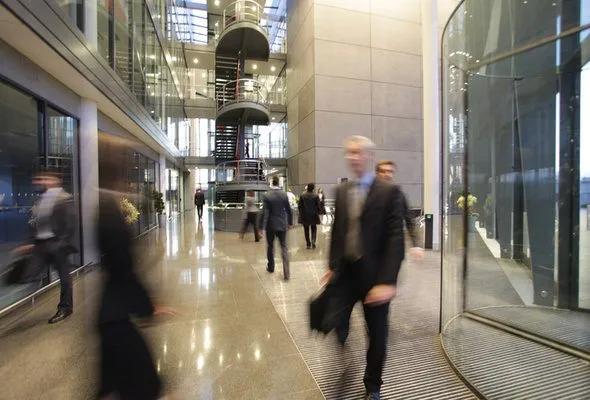When it comes to your money, your first priority should be to make sure it’s safe. You could stuff your cash in your mattress or bury it in the yard but keeping it on deposit at a bank or credit union is the more secure option. Unless you work in finance, it can be difficult to understand all the ins and outs of banking. There are plenty of misconceptions surrounding banks and their services and it’s easy to be misled by false information. We’ve taken the time to debunk some of the biggest myths to help make managing your finances as stress-free as possible.
A financial advisor can help you compare different bank accounts and products, and choose safe ways to manage and protect your money.
Your Money Is Safer in Cash Than at a Bank
Some people believe that holding cash at home or in a personal safe is more secure than putting it in a bank. This often stems from concerns about banking institutions or worries about potential system failures. However, physical cash is vulnerable to loss, damage, or theft. If it’s stolen or destroyed, there’s typically no way to recover it.
Keeping your money in a federally insured financial institution, by comparison, offers a level of protection that cash cannot. Accounts at FDIC-insured banks or NCUA-insured credit unions are covered up to $250,000 per depositor, per institution. This insurance protects your deposits even in the rare case of a bank collapse, offering a secure environment for your funds.
Another drawback of holding onto cash is that it does not earn interest or grow in value. Funds placed in checking, savings accounts, or money market accounts can generate modest returns, helping them retain purchasing power over time. Storing money in a bank allows it to work for you, while keeping it in cash at home may lead to gradual loss in value due to inflation.
Mobile/Online Banking Puts Your Information at Risk
Identity theft is a rapidly expanding criminal enterprise and cyber thieves are hard at work developing more sophisticated ways to make off with your personal information. While there’s no guaranteed way to prevent your bank account from being compromised, the belief that you’re more at risk for identity theft if you use mobile or online banking services simply isn’t true.

Banks and credit unions that offer these services implement strict security measures to keep your personal information and your accounts safe. Typically, this involves using secure encryption software and multi-factoring authentication, which requires you to enter unique personal information in order to access your account. Any data you transmit to your bank’s server is scrambled to prevent identity thieves from tampering with it.
Related Article: The Pros and Cons of Switching to a Mobile-Only Bank
If you still have concerns about the safety of online or mobile banking, there are a few things you can do to protect your bank account. Choosing a unique user ID and password, only accessing your accounts from a secure computer and logging out of your account after every session can minimize the risk while you’re online. Not using public wifi and clearing your data cache on your phone can also keep you protected if you’re banking on the go.
Big Banks Are Safer Than Smaller Banks or Credit Unions
There are plenty of good reasons to choose a big bank over a local community bank. Bigger banks are likely to have more branches and ATM locations, which is great if convenience is a concern. Larger banks may also offer a wider range of services, such as online banking or bill pay.
In terms of services, a big bank may look a little flashier but it doesn’t necessarily make it any safer than other types of banks. The FDIC extends the same protection of up to $250,000 per depositor, regardless of whether your life savings is parked at a national bank or your neighborhood credit union. Community banks also tend to take a more personalized approach with their customers, which is not something you’re guaranteed to get with a big bank.
Debit Cards Have the Same Theft Protection as Credit Cards
In terms of how they work, credit and debit cards are not created equally. The same goes for the level of protection they offer against identity theft. Credit cards are covered under the Truth in Lending Act, which means if your card is stolen your liability for unauthorized charges is limited to $50. Debit cards, on the other hand, are covered under the Electronic Funds Transfer Act, which offers less in the way of consumer protection.
Related Article: Top 5 Things to Buy With a Credit Card
Generally, you’re not liable for anything if you report the loss or theft of your debit card as soon as it occurs and the card isn’t used. If you wait two business days to give the bank a heads up, your liability goes up to $50 for unauthorized charges. After three days, your liability goes up to $500. If you wait more than 60 days to report your debit card as lost or stolen, you’ll be on the hook for the full amount of any fraudulent transactions.
Credit Unions Don’t Offer Any Advantages Over Traditional Banks

Credit unions may be one of the most misunderstood types of financial institutions. They offer the same services as regular banks but they differ in certain ways. Instead of being controlled by shareholders, credit unions are member-owned and operate on a not-for-profit basis. Your ability to join a credit union may be based on certain criteria, such as where you live or where you work. In terms of their safety, deposits at credit unions are subject to the same FDIC protections as other banks.
There are some definite advantages to choosing a credit union versus a traditional bank. For starters, their operating structure makes it possible for them to offer better interest rates and fewer fees. While they may not be as widely accessible as bigger banks, most credit unions will reimburse you for any fees charged for using a foreign ATM. You may also find it easier to qualify for a loan or line of credit at your credit union.
The more educated you are about your banking options, the more peace of mind you’ll have about your financial decisions. Being able to separate fact from fiction can help you avoid any major money mistakes.
Bottom Line
Many people believe myths about banking that aren’t true. Online banking is safe when used correctly, small banks and credit unions are just as secure as big banks, and credit cards offer better fraud protection than debit cards. Credit unions can also offer lower fees and better loan rates than regular banks. Knowing the facts can help you build a better financial strategy to reach your money goals.
Tips for Financial Planning
- A financial advisor can help you build a comprehensive financial plan. Finding a financial advisor doesn’t have to be hard. SmartAsset’s free tool matches you with vetted financial advisors who serve your area, and you can have a free introductory call with your advisor matches to decide which one you feel is right for you. If you’re ready to find an advisor who can help you achieve your financial goals, get started now.
- If you want to build your savings up consistently, consider setting up automatic transfers from your checking to your savings accounts. This approach could help you make saving a routine part of your financial life.
Photo Credit: ©iStock.com/multifocus, ©iStock.com/Weekend Images Inc., ©iStock.com/Isannes
